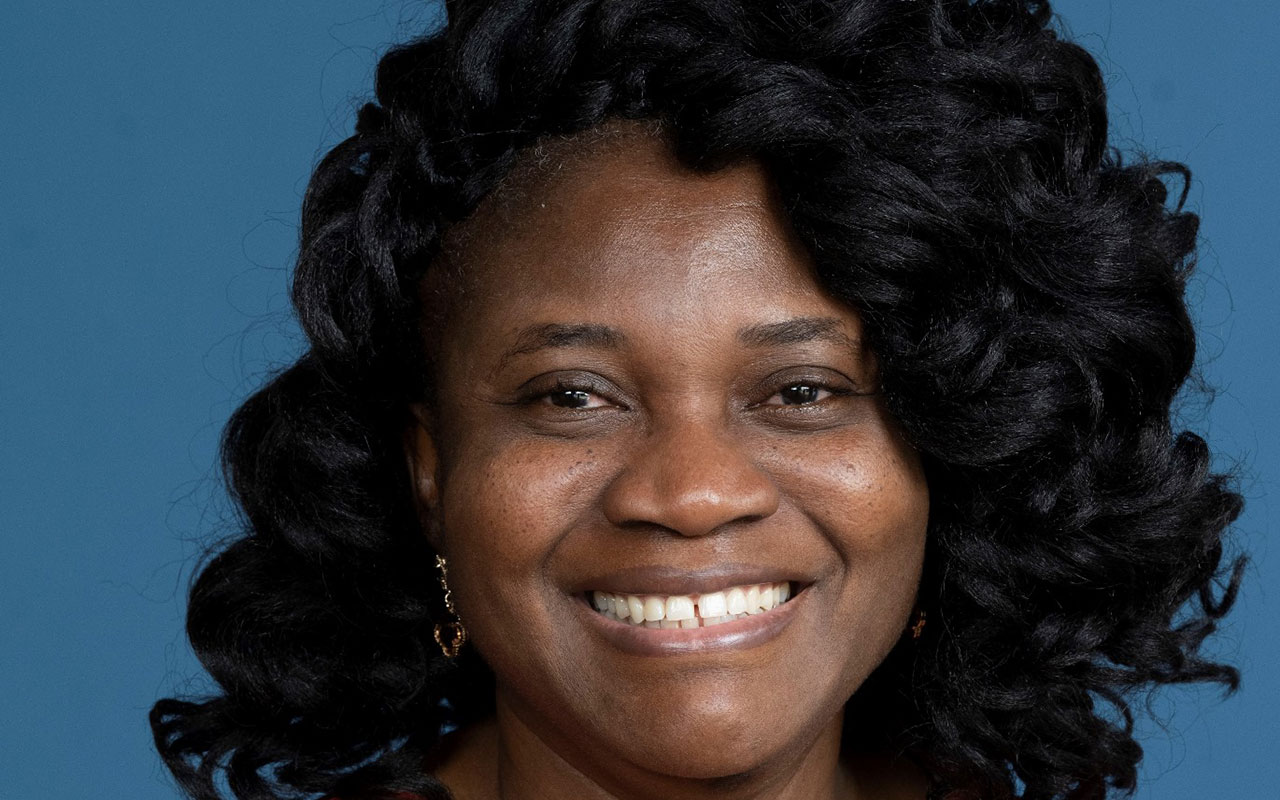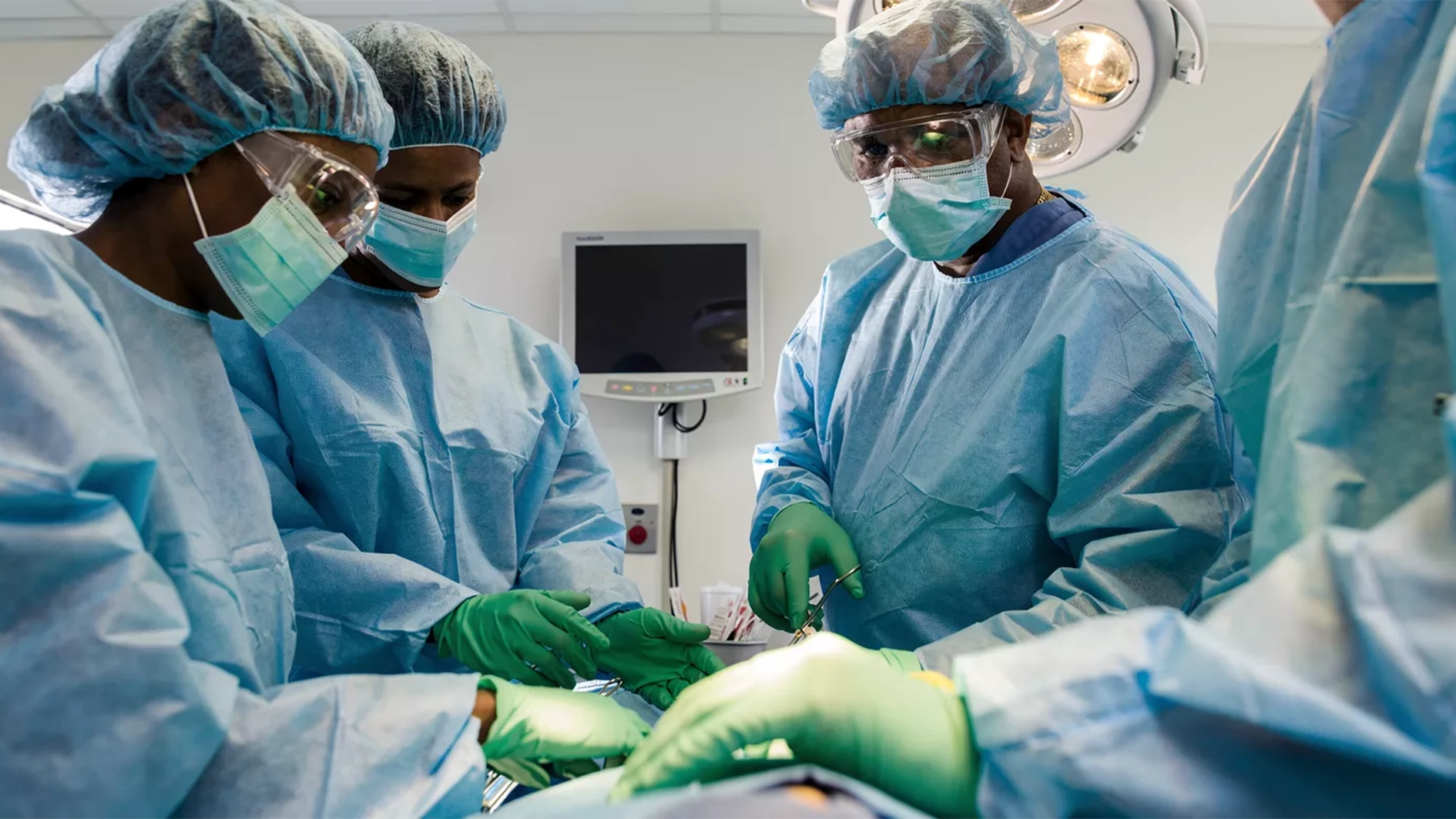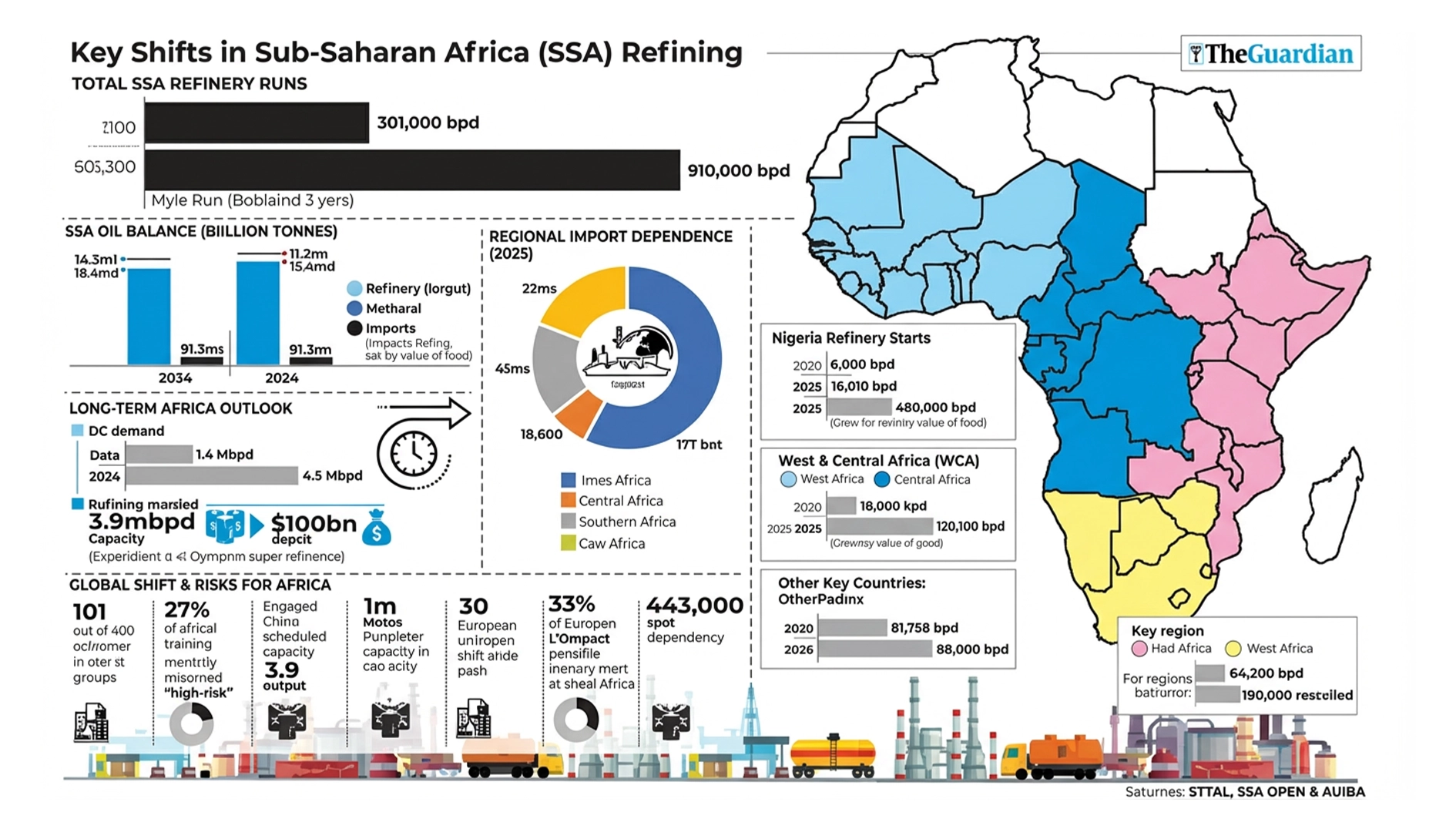
Mercy Eloho Sosanya is rounding up her PhD studies in the Department of Nutritional Sciences at the University of Texas, Austin, Texas, USA. She is also a former Head of the Department of Nutrition and Dietetics in the Federal Polytechnic, Bauchi, Bauchi State, where she is currently a Principal Lecturer.
She is a brilliant researcher whose research is centred around the nutrition of women, children, adolescents, those with nutrition-related illnesses and other vulnerable populations. She is passionate about providing solutions to eradicate or at least drastically reduce malnutrition in impoverished communities, using foods and other resources that are cheap and already available in such areas.
For instance, in order to combat severe malnutrition, which is widespread in some parts of the country, she created her own version of ready-to-use therapeutic foods for malnourished children and some nutrient-enriched cereal products for the whole family. These products have been displayed at national educational exhibitions.
Sosanya has now created a new and interesting tool called BabyThrive app to bridge the nutritional knowledge gap that young mothers have concerning feeding their infants and young children in the first 1000 days.
In this interview with GBENGA AKINFENWA, Sosanya x-rayed her career trajectory, the rationale for creating the app and how it works, and the potential of the app to expand across borders to influence child nutrition in other regions, with adaptations to local contexts.
Can you tell us briefly about your career trajectory?
It is interesting to know that I stumbled across the area of nutrition accidentally. I had never heard about it until I got into the university. Then, the moment I learned about what the study of nutrition entails, I fell in love with the course. I loved the prospect of helping people achieve optimum health through something as simple as food or diet. This motivated me to earn my bachelor’s degree in Human Nutrition at Nigeria’s premier university, University of Ibadan.
I graduated as the best student in the department. I also returned to the same institution for my master’s degree in human nutrition and graduated at the top of the class. Since 2005, I have been a lecturer and a pioneer staff in Nutrition and Dietetics at the Federal Polytechnic, Bauchi, Nigeria, eventually rising to head of the department.
I was privileged to have been instrumental to the process that took Nutrition and Dietetics from being a small unit under the Food Science and Technology Department, having only five students when we first started, to becoming a full-fledged, independent department, now enrolling over a thousand students.
I remember when as the head of the then Nutrition and Dietetics Unit, I championed a campaign of visiting numerous secondary schools to tell them about Nutrition and Dietetics, as many secondary school students had never heard about the course. After a few years of this campaign, our student enrollment ticked upwards significantly and then we became a viable department.
It is my joy and pleasure to have trained hundreds of students who are now working in academia, and as principal nutrition officers in many states in northern Nigeria, as well as in industry, business and in international and local non-governmental organisations and other places.
Much of my research has focused on documenting the nutritional and food insecurity status, child feeding practices and characteristic diets of rural and underserved households in northern Nigeria. I have also designed food-based interventions to combat undernutrition in these areas. For instance, one of my research projects characterised the macronutrient and micronutrient profiles of traditional foods consumed in northern Nigeria. Some of the nutrition data that our study provided were previously not available in the food composition tables for Nigeria.
Considering the work you have done so far, how many fellowships have you received?
As part of my career, I have received numerous fellowships including the TechWomen Fellowship, The International Fellowship of the American Association of University Women (AAUW), the Schlumberger Foundation Faculty for the Future Fellowship, the Donald D. Harrington Dissertation Fellowship, the International Peace Scholarship of the PEO Foundation, and many others.
TechWomen is a programme of the US Department of State, which selects outstanding women from developing countries for mentorship in Silicon Valley, California, and more recently, Chicago, Illinois. It is also interesting to note that our very own Dr. Ngozi Okonjo-Iweala, the Director-General of the World Trade Organisation, who has been named five times among the world’s 100 Most Influential People by Forbes, was also a recipient of the AAUW fellowship, which I also received.
Also, I have been awarded numerous research grants including Nigeria’s TETFUND research grants. My current research project is sponsored by the Schlumberger Faculty for the Future Fellowship. Additionally, I have consulted for international non-governmental organisations like UNICEF and Oxfam, and I have been involved in nutrition policy work in Nigeria. For instance, I was part of the Stakeholder Consultative Forum that reviewed the Strategic National Plan of Action on Food and Nutrition in Nigeria, and I also participated in the Dissemination of the Reviewed National Policy on Food and Nutrition.
I was a member of the panel that reviewed the nutrition curriculum for Nigerian universities, and I also chaired the Education/Scientific committee that had oversight in coordinating the scientific presentations at the 45th Annual National Workshop and Scientific Conference of the Institute for Dietetics in Nigeria. I was also a member of the Publicity Committee of the Nutrition Society of Nigeria. In 2020, I was one of the main speakers at the Virtual Nutrition Conference organised by the Aisha Buhari Foundation, the non-governmental organisation founded by the wife of Nigeria’s former president. I had the pleasure of being a speaker at that event, which was graced by the presence of the then Vice President of Nigeria, Prof. Yemi Osinbajo, as the keynote speaker.
Another interesting thing about my work is that while I work as a nutritionist, I also have the pleasure of being a STEM advocate. STEM is an acronym for science, technology, engineering and mathematics. I have initiated and implemented numerous STEM outreaches to secondary schools and other institutions to inspire and challenge young people, particularly girls, to take up STEM careers.
Through these outreaches and programmes, I have reached over 2000 young people in Nigeria, the U.S. and UK with the message of how they can unlock the power of STEM to solve the world’s pressing problems. Some of the programmes I initiated include Girls Discover STEM, My First Lines of Code, and Two Hours of Coding. I also collaborated with the 2015 Nigerian cohort of TechWomen to implement our project titled “STEM-in-a-Box”, in which we donated science laboratory equipment to schools across several states in Nigeria.
In summary, I am having an interesting and fulfilling career in nutrition and as a STEM enthusiast; I truly love the work that I do.
To bridge the huge gap in nutrition knowledge in Nigeria, as part of your research work, you developed a mobile gaming app called BabyThrive, what’s this about?
Yes. First, my rationale for developing the app came because of a shocking experience that I had. I had been working as a nutrition lecturer and researcher in northern Nigeria for quite a while, but I did not encounter the severity of the problem of undernutrition until 2016, when I visited a remote, rural community with a friend.
In that village, I saw dozens of children with very visible and pronounced ribs, distended abdomens, very thin limbs, and discoloured, sparse hair – all very clear, clinical signs of severe malnutrition. Some who were big enough to walk could not walk, as the severity of the malnutrition had resulted in some physical disabilities. I had never seen that magnitude of damage due to undernutrition!
What I could not understand was that some of these children were sitting around large expanses of cultivated farms. And I am aware that a lot of the food consumed in Nigeria is produced in the North. And then I could not wrap my head around why these children were so severely malnourished in the midst of so much food. On further research, I discovered that there was a disconnect between foods produced in the area, and the knowledge of how to utilise these foods appropriately to nourish their children.
To intervene, I started visiting rural communities to enlighten mothers on breastfeeding and how to utilise available and affordable foods to properly nourish their children. But I quickly realised that my approach was limited because there are not very many trained nutritionists who would be willing to self-fund such nutrition campaigns like I did, and of course I also was limited by time and resources. That is why I decided to leverage mobile phone technologies that are ubiquitous in developing countries, often surpassing other infrastructure, like roads and electricity.
By disseminating nutrition information through mobile technologies, we can achieve effective and widespread coverage of dissemination of nutrition information, with reduced costs, time and personnel.
To reduce child malnutrition, I developed a mobile gaming app called BabyThrive, in collaboration with my PhD mentor, Dr. Jeanne Freeland-Graves. I created the content for the app based on the UNICEF and WHO recommendations for child feeding, with permission from the Federal Ministry of Health, Nigeria. I then recruited a panel of nutrition experts to establish the scientific validity of the app content that I developed.
I also conducted focus group discussions with teenage mothers, who are the intended users of the app, to evaluate what they know about child feeding and to assess their interest in a technology-based solution. Working closely with my PhD mentor, as well as a mobile gaming expert, Sadia Bashir, founder and CEO of PixelArt Games Academy in Pakistan, we developed a video gaming app that teaches about breastfeeding and complementary breastfeeding.
For instance, many teenage mothers do not know that babies should be breastfed for about 20 minutes on one breast, before changing to the other breast, so that the infant can get enough hind milk, which is rich in protein and fat. This hind milk is very important for satisfying the baby’s hunger and promotes adequate growth. Insufficient hind milk is one of the reasons many mothers feel that breast milk alone does not satisfy babies or that exclusive breastfeeding does not allow babies to grow well.
BabyThrive teaches these concepts, along with numerous other breastfeeding tips and techniques. Also, many young mothers do not know how to prepare nutritionally adequate meals, so they end up feeding their babies with only cereal pap/porridges or gruels, which provide insufficient nutrients and the meals become monotonous.
Their children reject these monotonous diets, so the mothers have to force-feed their infants by restraining the child’s limbs between their laps and pouring the food into the child’s mouth. The child then cries, breathes and eats at the same time, often resulting in choking, which has caused many deaths.
BabyThrive contains many nutritious recipes to help mothers provide variety in their children’s diets, and also teaches mothers about recommendations for meal quantities, timing, frequency, diversity and hygiene for successful complementary feeding. The recipes contained in BabyThrive are nutritionally adequate and made from locally available, culturally relevant and affordable foods.
The BabyThrive app uses an audiovisual technique, so that mothers who cannot read can easily use it. Because BabyThrive is built on the UNICEF and WHO child feeding recommendations that are used in 90 countries of the world, it can be easily adapted into other languages, and recipes common to different localities can easily be added to the app.
Thus, the app can easily be adapted for use in other local contexts and can easily expand and spread across borders to improve child nutrition. A researcher in Bangladesh has expressed interest in adapting the app for use among indigenous tribes in her country.
After the app prototype was developed, I recruited experts in nutrition and gaming to evaluate the app. On a scale of 1 to 5, these experts rated the BabyThrive app highly for quality. Furthermore, the majority of early users (teenage mothers recruited with the help of Centre for Family Health Initiative to test the app) agreed that the app was easily usable.
Currently the app has been scientifically validated, and the results are under review for publication in a high-impact scientific journal.
The validation studies showed that by using the BabyThrive app, mothers’ knowledge of exclusive breastfeeding and complementary feeding, and total knowledge of child feeding increased significantly after training with the app, as compared to before using the app.
About 400 early access users (including the teenage mothers recruited for the validation study) have been permitted to download the app and use it. Currently, a clinical trial of the BabyThrive app is ongoing to determine the app’s impact on knowledge, attitudes and behaviour of teenage mothers concerning child feeding, and on the growth and blood levels of iron and zinc of their children under two years of age. We are working on creating a sustainable model for making the app widely available to the public once the clinical trial is completed. Anyone interested in the app can reach me on LinkedIn.
Your career story, impact and your most recent project, The BabyThrive app all sound very interesting. What advice do you have for young people who may be interested in following in your footsteps?
I would say that first, explore (gather information about) different career options with an open mind; find one that resonates with you. When you find it, pursue it with passion, do all you can ethically to excel in this career, and find ways of turning your passion into a vocation that can pay your bills and make you prosperous.
And while you are at it, learn new skills regularly in closely related or even distant fields, so that you can become versatile and thus increase your career value. For instance, I had to learn some basic web development in order to understand how technology works. I keep learning new skills everyday to keep me relevant.
For those who want to study nutrition, it is a rapidly expanding field that is gaining wide application in medicine, psychology, other interesting areas and in life generally. The first step is to get a first degree in Nutrition, and if you really want to make an impact, then make efforts to get an advanced degree.
Although this saying sounds cliché, and many have argued its validity, I believe it holds true in many ways: You are what you eat! Adequate nutrition can help prevent numerous diseases, as the top killer diseases in the world are nutrition related. Proper nutrition can also help medical treatments to be more effective. Overall, appropriate nutrition enhances health, well-being and improves quality of life.






